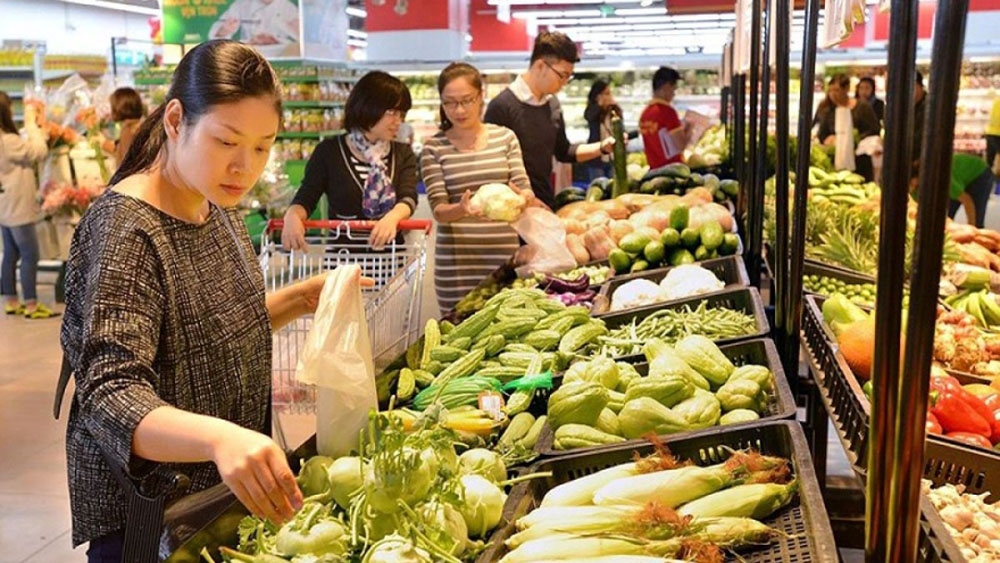Vietnamese consumer price index to fall within limit this year, says economist
Society – Economy - Ngày đăng : 17:49, 03/07/2024
Factors behind CPI hike

Prof. Long cited a report recently unveiled by the General Statistics Office (GSO) saying the local CPI rose by 4.34% in June compared to the previous year, fueling the CPI to inch up by 4.39% in the second quarter and 4.08% in the first half of the year.
He attributed the CPI hike to increasing prices of essential commodities such as food and foodstuff, housing, electricity, water, fuels, and construction materials.
An increase in input costs also served to fuel cost-push inflation. The past six months witnessed the economy’s production costs continue to climb due to a relative increase taking place in the costs of most production inputs.
Furthermore, rising exchange rates contributed to driving up the price of goods through import channels.
As Vietnam is a highly open economy that is heavily dependent on imported raw materials and fuels, it is more vulnerable to global economic shocks, said Prof. Long.
In fact, the global economy recently faced high inflationary pressure and recession risks. Geopolitical tensions also impacted commodity price fluctuations in the market. In particular, many countries moved to implement tight monetary policies, forcing others to increase exchange rates and interest rates.
However, the economist predicted that Vietnamese CPI would probably not experience a rapid increase and will hover at between 4.2% and 4.5% by the year’s end due to decreasing inflation and market prices globally.
The Government remains both cautious and proactive in managing market prices and controlling inflation in order to stabilise the macroeconomy, creating room to promote further growth, explained Prof. Long.
Inflation to be kept within reach
Taking the floor, PhD Nguyen Duc Do, deputy director of the Institute of Economics and Finance, introduced three scenarios for the country’s inflation this year depending on oil fluctuations in the world market as well as the health of the United States’ economy.
In his calculations, the local inflation rate would probably stay at 3.2% if oil prices go up slightly and exchange rates remain stable; at 3.4% if oil prices and exchange rates keep stable; and at 3.6% if oil prices and exchange rates fall and the US economy moves into recession.
To stabilise market prices up to the year’s end, a representative of the price watchdog of the Ministry of Finance recommended closely monitoring market fluctuations, especially for essential products and services, to come up with flexible and timely price management policies.
For State-controlled products and services such as electricity, health services, and education services that are undergoing the market economy roadmap, he said the Ministry of Finance will continue to keep a close watch on the price roadmap formulated by specific ministries to update inflation scenarios and consult with the Government to ensure average inflation will be kept at between 4% and 4.5% as the set target.
The Ministry of Finance will also closely coordinate efforts with the Ministry of Industry and Trade to regulate retail petrol and oil prices in line with market developments, while also making recommendations to complete the petroleum price management mechanism.
The price watchdog will also seek to increase market inspections to timely detect and handle any violations which may occur, he said.
